CoastWatch encourages participation in science that has the potential to contribute to healthy communities and unlock natural mysteries
CoastWatch encourages participation in science
Our Projects and Partners
Community science is a form of stewardship in which non-scientists can play a valuable role in gathering information that contributes to research and management of the Oregon coast. For CoastWatch volunteers, it provides an opportunity for an in-depth assessment and investigation of their adopted miles. Some projects involve joining a team for a formal survey using scientific protocols; others involve being watchful for specific phenomena and knowing how to report the information.
Wildlife
Monitor and observe coastal animals on the sandy beach and in the rocky habitats
Water and Plastic
Survey marine debris or help determine nearshore ocean health
Landscape and Habitat
Take photos of high tides or learn how to spot hybrid beachgrass
Wildlife
Monitor and Observe Coastal Animals
Observe Beached Birds
The beached bird survey, developed by COASST (Coastal Observation and Seabird Survey Team, based at the University of Washington), involves monthly surveys using a formal protocol. COASST staff trains volunteers online and through training sessions in Oregon.
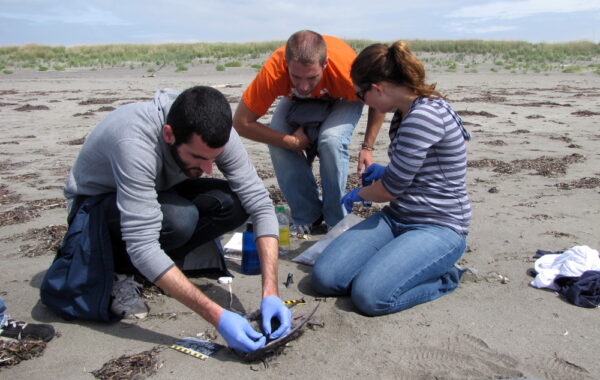
Complete Sea Star Observations
The Oregon Kelp Alliance (ORKA) and (the Multi-Agency Rocky Intertidal Network) MARINe encourage volunteers to submit observations of all species of healthy and sick sea stars in intertidal and subtidal environments. Get wet!
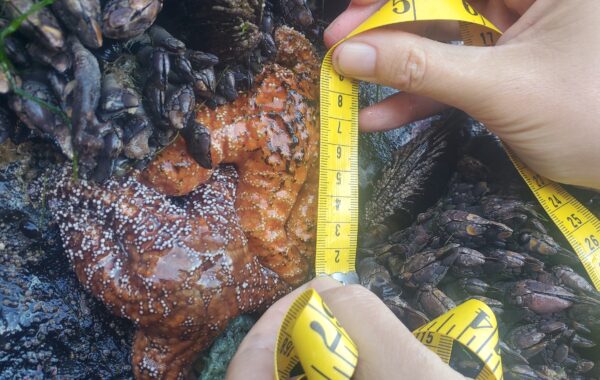
Report Stranded Marine Mammals
CoastWatchers and other observers report marine mammal strandings to the Oregon Marine Mammal Stranding Network year-round. Anyone observing a stranded animal, alive or dead, anywhere on the coast can assist by submitting an online report.
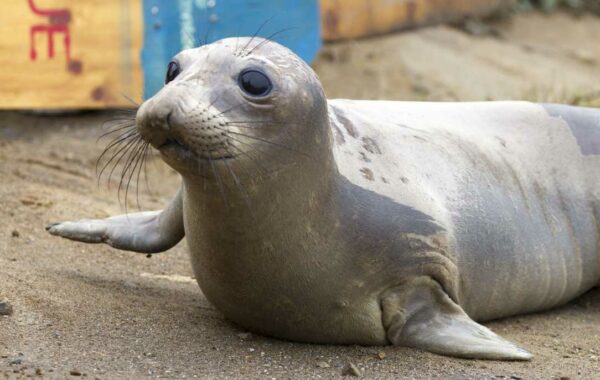
Document Killer Whale Sightings
Contribute to new research about killer whales that frequent Oregon’s waters. Submit your sightings and photos to the Oregon Coast Killer Whale Monitoring Program.
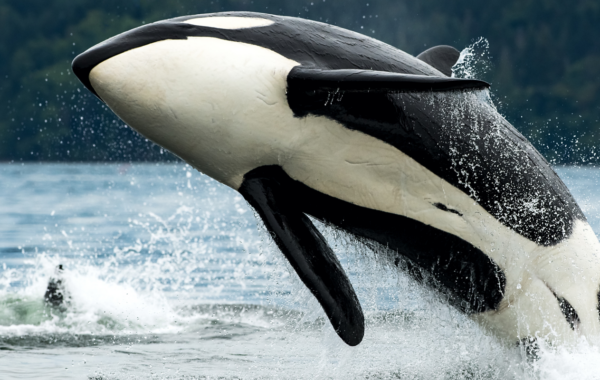
Water and Plastic
Track Our Impact on Coastal Ecosystems
Conduct Marine Debris Surveys
CoastWatch volunteers can choose one of two ways to monitor and map marine debris on their mile. Both NOAA (National Oceanic and Atmospheric Administration) and the University of Washington offer protocol training sessions blending online, classroom, and in-the-field education.
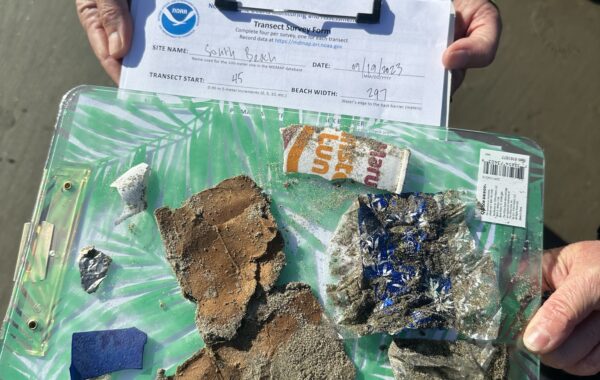
Water Quality
The Blue Water Task Force works all along the Oregon Coast, collecting and processing beach water samples to look for enterococcus, a bacteria indicating levels of ecoli. BWTF is a program of the Surfrider Foundation, and eight chapters collect and process water from 44 sites on the Oregon coast.
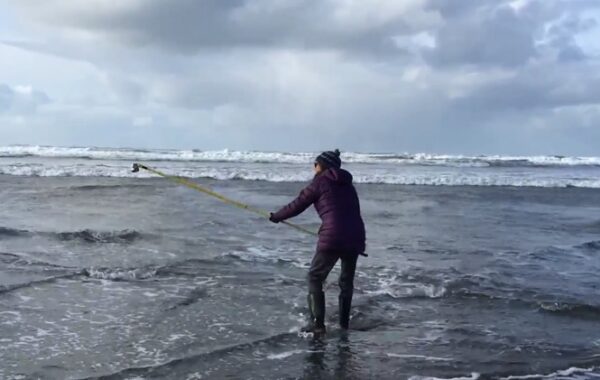
Landscape and Habitat
Document Changes in Coastal Landscapes
Monitor King Tides to Track Sea Level Rise
Volunteers for the Oregon King Tides Project photograph King Tides to demonstrate current coastal flooding vulnerabilities and anticipate what will become ordinary tide levels as our climate changes. CoastWatch and the Oregon Coastal Management Program provide outreach and training in fall and winter.
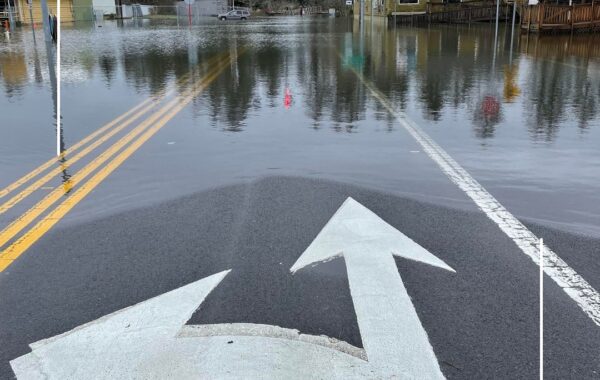
Survey Dunes for Hybrid Beachgrass
The hybrid beachgrass survey is a collaboration with scientists at Oregon State University. In the spring, summer, or fall volunteers use iNaturalist to help track the spread of a newly discovered beachgrass, a hybrid of the two invasive species of beachgrass that dominate Oregon’s coastal foredunes.
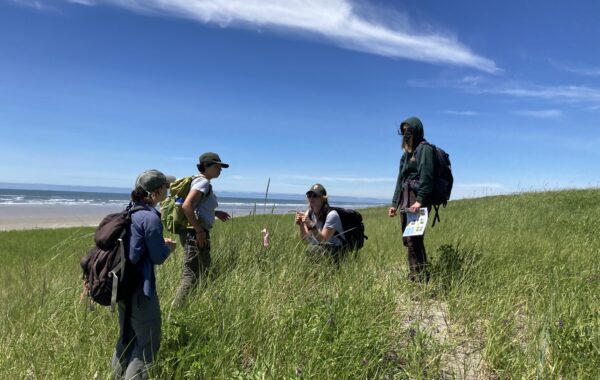
Students flourished while implementing the Marine Debris Mapping protocol and teachers gained confidence as environmental educators. We connected teachers to resources and helped students meet standards in engaging ways, energizing our next generation of stewards through relevant citizen science work.
--- Denise Harringon, NOAA Teacher at Sea Alumni Association Fellow
FAQs
Explore answers to common questions about our Co-Science program. If you have more questions or concerns, please contact us.
-
How do I get involved?
Start by Adopting a CoastWatch Mile and we will let you know what projects are happening in your area of interest.
-
Can I join an existing community science project?
Yes, contact the CoastWatch Program Manager.
-
I'm a scientist or researcher looking for support- how can I get CoastWatch volunteers involved in my project?
We would love to hear more about how we can support your work! Visit our Contact Us page and contact Jesse Jones, CoastWatch Program Manager.
-
Should it be called "Citizen Science" or "Community Science"?
By any name, this critically needed movement invites the participation of all people everywhere. Below are some examples of where terminology has changed and why from our friends at Citizenscience.org, Portland Audubon, and California Academy of Scientists. Some of our science partners use “citizen science,” and others use “community science.” We respect both terms while we go through strategic planning in 2023/24. Please share your feedback with us!
Here are some useful links to read more:
Help us create a healthy and resilient Oregon coast where nature and all people thrive together.
27
Apr
27
Apr
Coastal Event
In-Person Black Oystercatcher Community Science Training
30
Apr
30
Apr
Oregon Shores Event
Marine Debris Mapping on the Oregon Coast Webinar

